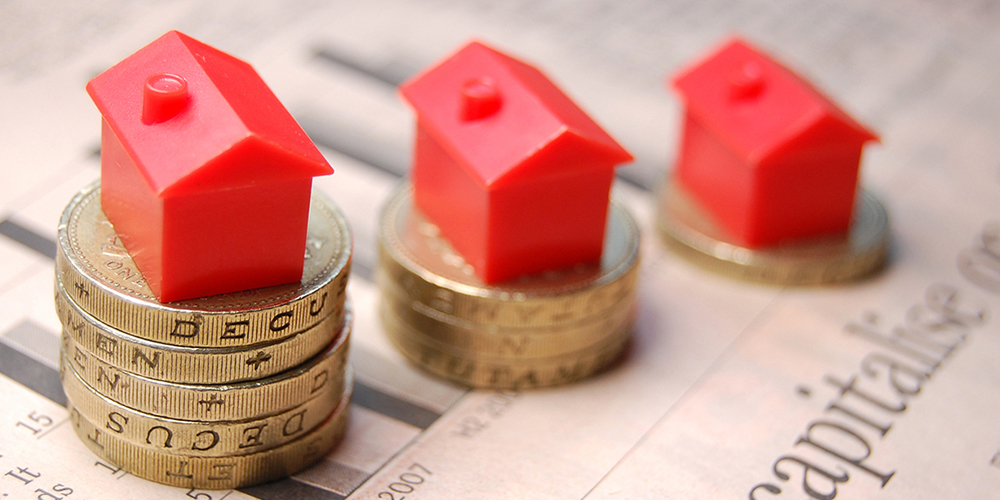How much Stamp Duty will I have to pay?

.webp) Whole of market brokers
Whole of market brokers
.webp) Mortgage that suits you
Mortgage that suits you
.webp) On time customer support
On time customer support
A question a mortgage broker gets asked frequently is ‘how much stamp duty will be charged if I buy this property?’.
Stamp duty has become quite a big problem for the property buyer. With costs including solicitors, mortgage, broker and estate agent fees, the additional stamp duty charged can often be a cost that is forgotten. It is also a lot more than clients expect it to be.
What is Stamp Duty and why am I Charged?
Stamp duty is a tax that is charged to property buyers in a lump sum form. It has to be paid if the property value is over a certain amount regardless of the buyer's income. The amount of stamp duty changes from property type. As you will pay more for a second property than you would if you were a first time buyer.
To answer the question of how much stamp duty you would pay for as a first time buyer the rates are as follows:
Current stamp duty rates are:
-
Up to £125 = 0%
-
£125K to £250K = 2%
-
£250K to £925K = 5%
-
£925K to £1.5m = 10%
-
Anything over £1.5m = 12%
These rates of stamp duty came into effect in 2014 and are actually designed to be fairer, than that of the previous stamp duty which was as stated:
Let's assume you're buying a property for £300,000.
Old system Stamp Duty:
You would have paid 1% on a property between £125,000 and £250,000, between £250,000 and £500,000 you'd pay 3%. So because the purchase price is over £250,000, you'd have paid 3% on the entire purchase price, despite only being £50,000 above the threshold. Thus, you'd have paid £9,000 in stamp duty.
New system Stamp Duty:
-
You pay nothing below £125,000, which is £0
-
You pay 2% on between £125,000 and £250,000, which is £2,500
-
You pay 5% on the value of the property above £250,000, which is £2,500
-
So in total this means you'll pay £5,000 (£0+£2,500+£2,500).
Understanding Stamp Duty:
Case Study:
Property Value £300,000
The first £125,000 will not incur tax. Its is stamp duty free. You will not pay stamp duty on that amount.
This means that if you buy a property under £125,000 you will not pay any stamp duty on that property. This however is very unlikely for a property in London.
The portion of your property that comes into the bracket between the values of £125,000 and £250,000 will charge a stamp duty of 2%. In the case of this study where the property is valued at £300,000 the applicant will be in the tax bracket of £125-300,000 and you will incur a charge of £2500.
The amount of the property that is valued over £250,000 will be charged at 5%. Thus in a property valued at £300,000 you will be charged 5% of £50,000 which is another £2500. With all these costs added together your total stamp duty will come to £5000 for a first time buyer.
However if you are looking to buy a second home you will incur a lot more stamp duty. This is due to there being an additional 3% banding on the stamp duty.
Here is what it would look like if you are buying a second property for £300,000.
-
You pay 3% on the first £125,000, which is £3,750
-
You pay 5% on between £125,000 and £250,000, which is £6250
-
You pay 8% on the value of the property above £250,000, which is £4000
- So in total this means you'll pay £14,000 (£3,750+£6,250+£4000).
Contact us now to discuss your personal options, Revolution Finance Brokers specialise in commercial and residential finance in Essex, Kent, London and Hertfordshire.
FCA disclaimer
The content included in our articles, blogs, web pages and news publications is based on information accurate at the time of writing. Note that policies and criteria can change regularly throughout the UK mortgage lending market, and it remains essential to contact the consultation team to receive up to date guidance. The information included on the Revolution Brokers site is not bespoke to any circumstances or individual application scenarios and therefore is not intended to be used as financial advice. The content we share is designed to be informative and helpful but cannot be relied upon to provide individual advice relevant to your mortgage requirements. All Revolution team members are fully qualified, trained and experienced to provide mortgage advice of an independent nature.
We collaborate with lenders and providers who are regulated, authorised and registered with the Financial Conduct Authority (FCA). Should you require specific mortgage borrowing types, some products such as buy to let mortgages may not be FCA regulated. The Revolution team can provide further information about regulated and unregulated lending as required. Please remember that a mortgage is a debt which is secured against your home or property. Your home can be at risk of repossession if you do not keep up with the repayments or encounter any other difficulties in managing your mortgage borrowing responsibly. This also applies to any remortgage or home loan secured against your property, including equity release products.

